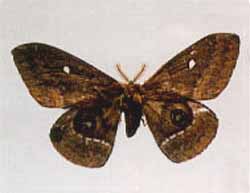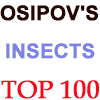Salassa tibaliva
Chu et Wang, 1993
Superfamily: Bombycoidea Latreille, 1802 |
"Moon River" |
|
|
Updated as per personal communication with Stefan Naumann (The European Entomologist, Vol. 2, No. 3{4}, pp 93-122: Bhutan); March 13, 2010 |

Superfamily: Bombycoidea Latreille, 1802 |
"Moon River" |
I believe it has been reported from Nyingchi County, Temelín, at an elevation of 3,000 meters, above the coniferous forest belt near Sejila Hill. It has also been reported from Thangthangka, Bhutan, at elevation of 3550m.
S. tibaliva is mainly olive green in colour, while S. royi is dark brown.
Naumann, Loffler and Kohll, 2010, have synonymized bhutanensis, Brechlin, 2009, with tibaliva, with tibaliva having precedence.

Salassa tibaliva 108mm, Thangthangka, Bhutan,
August 4, 2005, 3550m, BOLD Systems, on my home computer only.
Return to Salassa genus
Goto Asian Pacific Saturniidae Directory
Goto Indo-Eastern European Saturniidae Directory

|
 Support this website and visit other insect sites by clicking flashing butterfly links to left or right. |

|
Use your browser "Back" button to return to the previous page.